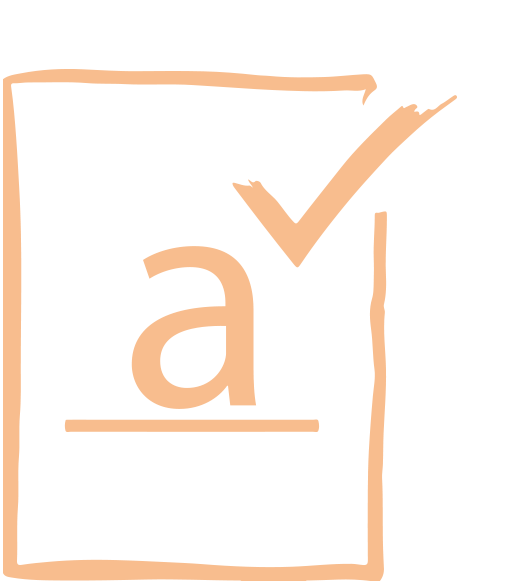You might be familiar with these verbs which have in common the use of the preposition “to”. This topic is aimed at helping you communicate by using them in a more efficient way.
They are relevant in the context of a family where each member usually expresses wishes, preference and needs as well.

At the end of this topic you will:
Be able to express yourself in terms of necessity, desire, preference and dislikes, through the daily activities performed by members of a family, to properly use verbs need, wish, want, like and dislike in present tense.
Content
In English there are verbs that share the same pattern for their use with a preposition. Their purpose is referred to:
Click on each concept to visualize detailed information.
Necessity
NEED /niːd/
We suggest you visit the next link.
You can see the definition and also the pronunciation of word NEED
HAVE /hæv/
It is suggested to visit the following link.
You can see the definition and also the pronunciation of word HAVE
Examples:
• I need to get some household provisions now.
• I have to go by car.
The verbs reviewed use preposition TO when actions are involved.
When things are involved TO is not required.
These verbs in combination with to are useful to represent desire, need, preference or dislike.
In the chart we’ll see it with the verb need as example:
| Affirmative | Negative | Interrogative 1 (closed) | Interrogative 2 (open) |
| I need to clean my bedroom. | I don’t need to be forced. | Do I need to be so tidy? | When do I need to ask a psychologist? |
| My mom needs to remind me sometimes. | She doesn’t need to be severe with me. | Does mom need me to call my father? | What does a mother need from her children? |
| Alexander and I need to be communicated. | We don’t need to drink alcohol to be a happy family. | Do we need to pretend in society? | Why do we need to use a survey? |
Exercise 1
Now that you have seen the nature of verbs with preposition, let’s see how you master the rules.


Exercise 2
There is one error per sentence. Rewrite the sentences correctly.

Activity 1
The verbs practiced here use preposition TO when actions are involved. When things are involved TO is not required. In the following activity you will see both cases.

Wittlieb, E. (2017). Living room [photo] Retrieved from https://pixabay.com/es/sal%C3%B3n-sof%C3%A1-silla-mesa-2174575/

Activity 2
Since you have reviewed the pronunciations of each of the verbs that imply desire or need, it is time to discover its usefulness when establishing a conversation. Then, let’s talk about family.

Lease, K. (2006). Family [photo]. Retrieved from https://goo.gl/lMkCTU
Formulate two sentences per verb. One with to and one without to as in the example to talk about you and your family/home:
a) I want to travel with my family.
b) I want happiness in my home.
Check the following example.
If you need to look up any word in a dictionary, we suggest you visit Cambridge Dictionary. You can see the definition and also the pronunciation of the word, in case you need it.
Finally, we suggest you prepare what you are going to say. Write down your sentences and practice it before you record, but DO NOT read while recording. The idea is that you try to speak, but this is not a reading activity. Just do your best.
Take a look at the rubric in order to know what are the elements you need in order to get a good score.

Activity 3
Oral comprehension will help you review the topic studied here. Let’s check how well you do in this skill.

-----

Activity 4

Writing is a good practice to apply what you can do.
In this case, type about four things a person needs to do to have a good relation with family. Take a look at the following example and write a similar text checking the rubric for this exercise.
The text must contain:
a) An introductory paragraph
Example: You need to do four
things to get on with your family
b) Supporting paragraph for thing 1
Example: First, you need to…
c) Supporting paragraph for thing 2
Example: Also, you need to…
d) Supporting paragraph for thing 3
e) Supporting paragraph for thing 2
Write between 50-75 words
If you need to look up any word in a dictionary, we suggest you visit
Cambridge Dictionary. There you can find the word you need.
Once you finished, check the grammar explanation and verify you used the verbs correctly.
When you finish your sentences, take a look at the rubric in order to know if you did it well or what things you have to improve.

The family is the perfect excuse to keep improving your domain over verb patterns. This exercise was developed to test your learning.
• ESL English Faby. (2013). English Grammar, like to, Want to, Need to. [video]. Retrieved on 2017, may 15 from https://www.youtube.com/watch?v=R_1wC3e1R_c
• Learn English with Ronnie. (2010). English vocabulary – The difference between “want” & “need”. [video]. Retrieved on 2017, may 15 from https://www.youtube.com/watch?v=tdEfBBCjDS4
• (n. a.). (n. d.). Want + infinitive. Retrieved on 2017, may 15 from http://www.tolearnenglish.com/exercises/exercise-english-2/exercise-english-60531.php